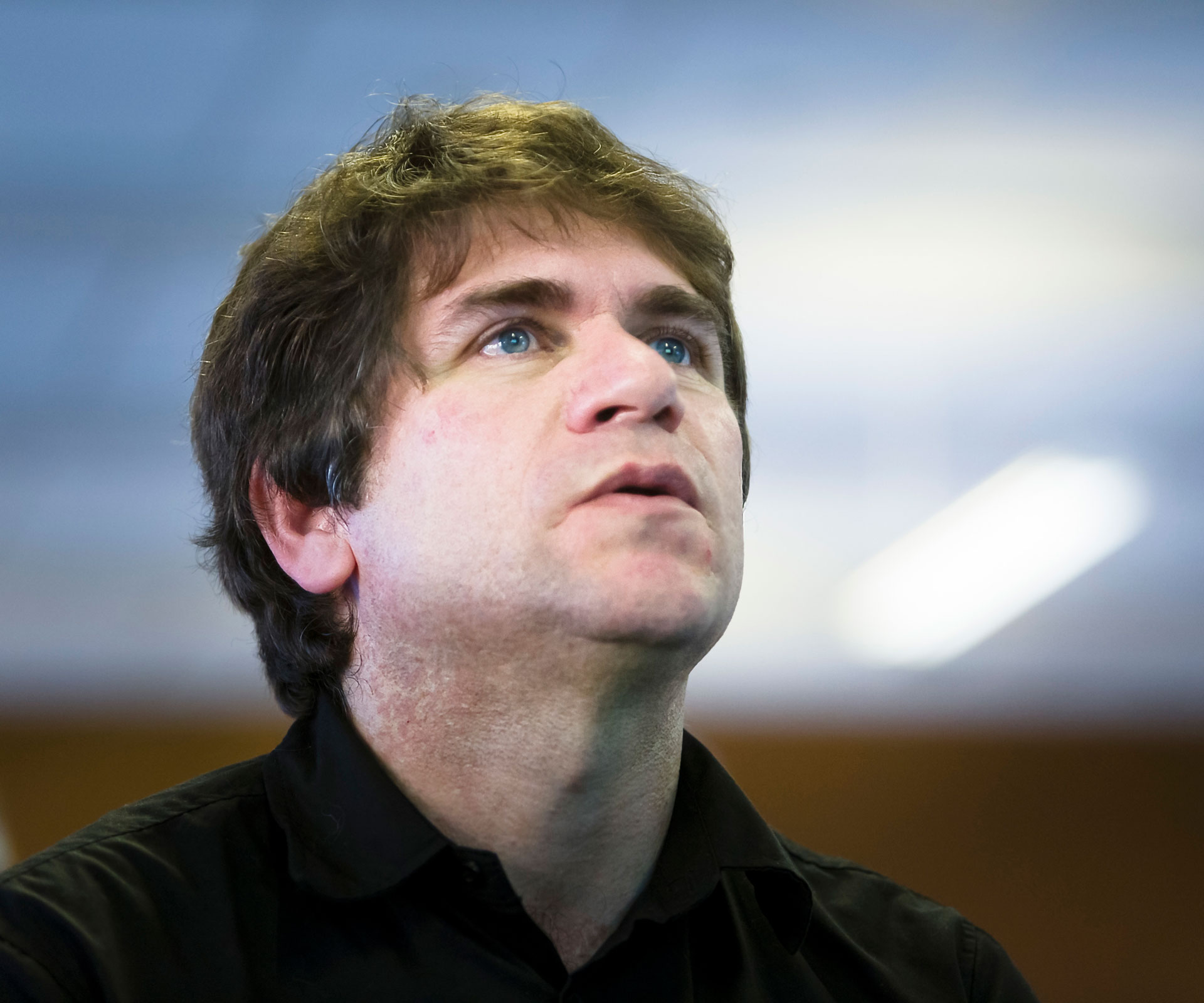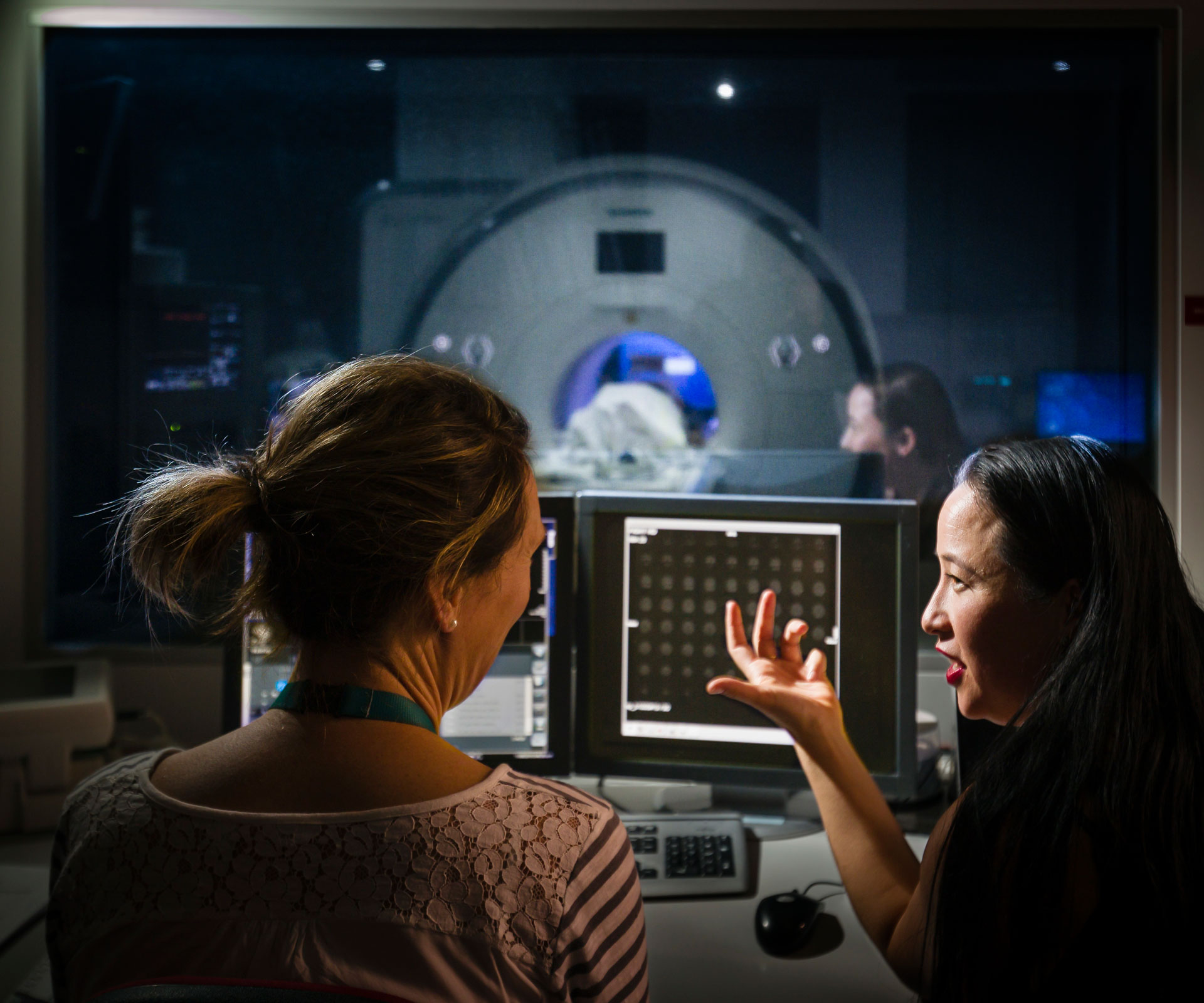“Haere mai – everything is ka pai…” It’s Monday afternoon at University of Auckland’s Tamaki campus and room 220 in building 730 is rocking.
“Summertime”, “You are My Sunshine”, “I Love the Mountains”… the songs sung by the 60-odd souls here are happy and boisterous. Tea breaks, though, are quieter – because many of these singers can’t speak.
Theirs are the remarkable voices of the university’s CeleBRation Choir, launched nearly six years ago by the Centre for Brain Research to provide both companionship and therapy for people with neurological conditions.
Former opera singer Mary Brown and English literature BA graduate Tony Petrasich are front-row regulars at the weekly choir sessions.

Many of the singers at the weekly choir meetings can’t speak.
Brown was 50 when she had her stroke in 1998, Petrasich just 32 when his struck in 2000. It left him in a coma for a month, in a wheelchair for six and in hospital for a year. In an instant, they both lost their ability to speak (a condition called aphasia). “I had nothing,” says Petrasich, “even my ABCs. It was like starting again as a little kid.”
While that’s difficult to tell now, such has been Petrasich’s progress, Brown still struggles to make a sentence, but she credits the choir with allowing her to at least make herself understood.
Brown was the featured soloist at last November’s dinner celebrating the centre’s fifth anniversary. She sang “Pokarekare Ana” flawlessly. Ask her now what song she sang, she cannot find the words. She can only sing them.
Classically trained as a schoolgirl by Dame Sister Mary Leo, Brown was so frustrated after her stroke that she smashed all the studio-recorded CDs of her own singing. She didn’t know that although she had lost her words, she had not lost the music – something she only realised at the first CeleBRation Choir meeting. “Wonderful!” she says. “Woohooo!”
Professor Suzanne Purdy, the university’s head of speech science, says it’s difficult to study the mechanism that allows a stroke patient with aphasia to sing, but scientists believe singing activates neurons in both sides of the brain, perhaps allowing words to be recovered via a different neurological pathway.
Typically, stroke patients who lose their speech have suffered the injury in the left side of the brain that is involved with processing language. For music therapist Shari Storie, who runs the choir with colleague Alison Talmage, it’s a rewarding job. “When they’re finally able to sing something, it’s a sense of accomplishment – there’s laughter, their faces light up. It’s a revelation.”

Music therapist Shari Storie says the experience is a revelation for choir members.
The scientific finding that music therapy can help rebuild language in the uninjured right side of the brain is “mind-blowing”, says internationally renowned neurologist and author Oliver Sacks. “Nothing activates the brain so extensively as music.”
It famously helped US politician Gabby Giffords regain her speech after surviving a shooting assassination attempt in 2011. Also intriguing, says University of Auckland senior lecturer and researcher Dr Clare McCann, is the fact stroke patients who can struggle to find words in their own language can learn to sing in another.
The words still exist in the brain, she says, but the stroke removes the ability to retrieve them. “In straight-out language-processing, you have a word, you retrieve it and use it. Something that is not language is facilitating retrieval for people who use singing effectively. We know it’s in the right hemisphere, and we know there are some kind of mirror neurons that are mimicking what is going on in the left.”

Former opera singer Mary Brown says finding her voice again is “wonderful”.
The researchers are trying to find out more about why singing works – by examining the impact of different songs, rhythms, words and music.
For the CeleBRation Choir, McCann says, it’s hard to quantify how much gain is from the music itself, or the socialising involved in the sessions. The singers all report feeling more confident and outgoing, more prepared to give things a go.
They may have lost the dictionary, but they’ve found the songbook.
Words by: Donna Chisholm
Photos: Adrian Malloch


